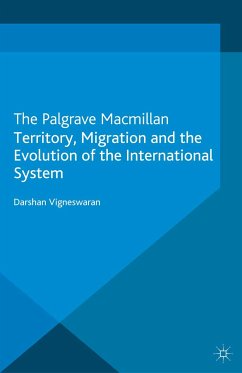Dieser Download kann aus rechtlichen Gründen nur mit Rechnungsadresse in A, B, BG, CY, CZ, D, DK, EW, E, FIN, F, GR, HR, H, IRL, I, LT, L, LR, M, NL, PL, P, R, S, SLO, SK ausgeliefert werden.
- Iver Neumann, Montague Burton Professor of IR, London School of Economics, UK
"Vigneswaran demonstrates adroitly how imagined cartographies produce territorial control of mobility. He delivers on the radical opening premise that while human migration transforms political space, political systems remain inept in responding to migration. He contextualizes contemporary border enforcement with alternative historical narratives of state territoriality. The book offers thoughtful and far-reaching analysis of European history to posit mental maps as 'radical simplifications' of space designed to control. Vigneswaran moves daringly beyond critique to ask how future systems of governance might actually work. This is an essential, lively, and illuminating read for anyone interested in political geography, mobility and territoriality."
- Alison Mountz, Balsillie School of International Affairs, Canada









